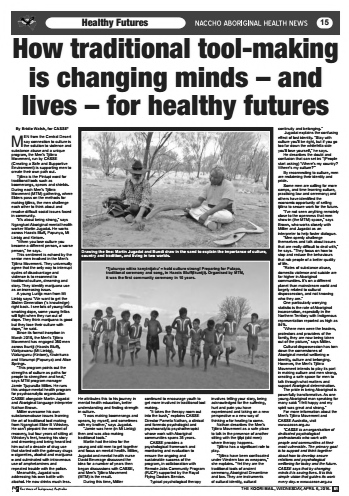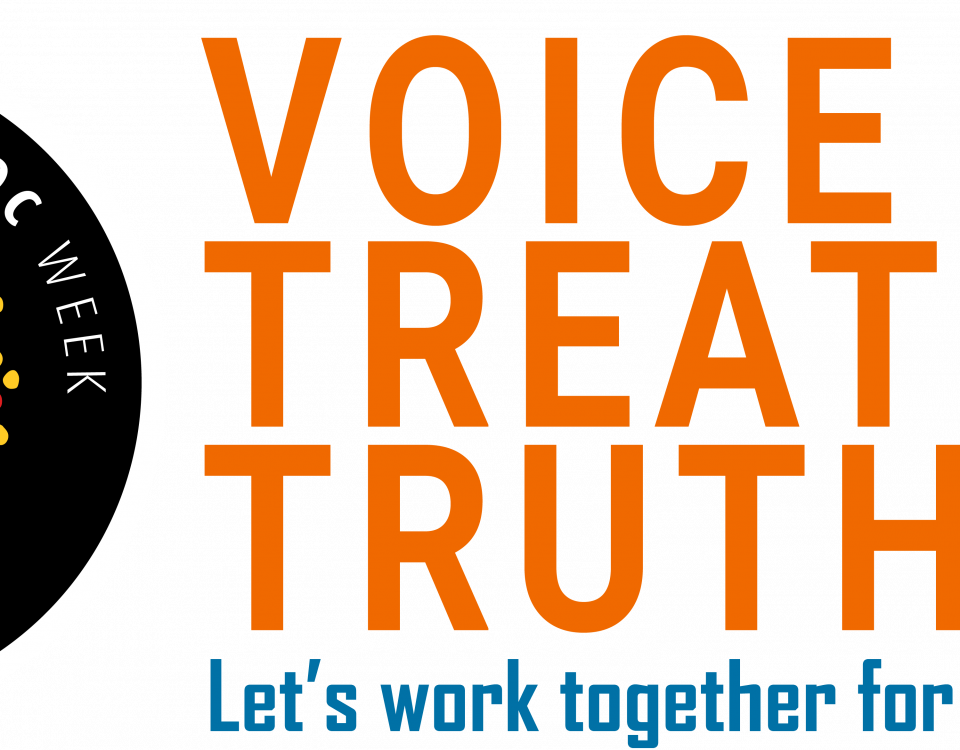
‘Changing Minds, Saving Lives’ – Psychoanalytic Insights: Suicide
March 11, 2016
NACCHO Aboriginal Health Newspaper features Men’s Tjilirra Movement
April 18, 2016By Pamela Nathan
Politics and healing are words that seldom share the same sentence, but in the past week there have been two discussions that had the potential to do just that.
Firstly, the Queensland Premier, Annastacia Palaszczuk, referred to that fact that Australia was invaded. She spoke of the importance of telling the truth regarding the way in which Australia was settled: http://www.abc.net.au/news/2016-03-30/palaszczuk-praised-for-australian-invasion-stance/7286434.
The second noteworthy discussion was sparked by Liberal MP Russell Broadbent, who has written to the Electoral Commission asking for the Victorian federal seat of McMillan to be renamed to remove links to the murder of Aboriginal people in Gippsland. http://www.abc.net.au/news/2016-03-31/liberal-mp-calls-for-federal-seat-of-mcmillan-to-be-renamed/7287046
Broadbent stated, “Angus McMillan has a history that is well-documented about his murderous ways in regard to our Indigenous people and it’s time to recognise that”.
“I think [the story is] well-known in Gippsland but I don’t think it’s well-known broadly and I think it’s very important that we address issues like this when we get the opportunity to do it.”
This is practical recognition at work.
As a nation we are often vocal against racist regimes and the abuse of human rights, but fearful of acknowledging our own shared black and white history, built upon racism and violence. The fallout in response to Palaszczuk’s comments regarding Australia’s history was entirely predictable and Waleed Aly offers an insightful summary of this response in an article published in The Age: Debate about Indigenous history in Australia always descends into hysteria because it bruises our misplaced national pride.
Silence about past wrongs won’t make them go away. Openly acknowledging and discussing what has happened can lead to greater mutual understanding and respect. To borrow Aly’s words, it can take us a step closer to healing the ‘historical scars’ that have become ‘fatal psychological wounds’.
Recognition of the pain and suffering of an individual, or a whole group of people, acknowledges that their pain and suffering does matter… that they matter… that they exist. This basic psychoanalytic principle is a powerful tool in the process of healing and reconciliation.
I implore every politician to follow this lead, and every Australian to grasp the opportunity to develop greater understanding.





